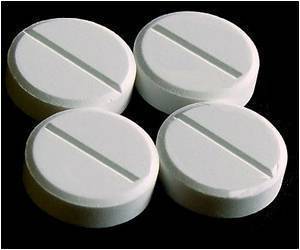“Recent vaccination developments and campaigns have proved to be effective and important in reducing the number of new symptomatic cases, hospitalizations, and deaths due to COVID-19.
However, COVID-19 still poses a risk to individuals in countries with low resources and limited access to vaccinations.” Says Dr Edward Mills of McMaster University, co-principal investigator on the trial.
“Identifying inexpensive, widely available, and effective therapies against COVID-19 is therefore of great importance, and repurposing existing medications that are widely available and have well-understood safety profiles is of particular interest.”
Fluvoxamine is used to treat mental health conditions such as depression and obsessive-compulsive disorders. It was chosen for study as a treatment option for COVID-19 due to its anti-inflammatory properties.
According to Dr Angela Reiersen, Associate Professor of Psychiatry at Washington University in St. Louis and co-author, “Fluvoxamine may reduce the production of inflammatory molecules called cytokines, that can be triggered by SARS-CoV-2 infection.”
The trial began in June 2020 with the fluvoxamine arm beginning in January 2021, recruiting a cohort of Brazilian adults who were symptomatic, had tested positive for COVID-19, were unvaccinated, and had at least one additional criterion for high risk.
741 participants were given 100mg of fluvoxamine twice daily for ten days and 756 participants received a placebo. The trial participants were observed for 28 days post-treatment, with the main outcome of the trial being patients spending more than six hours receiving physician treatment at a specialised COVID-19 emergency setting, or hospitalization.
Of the 741 participants who received fluvoxamine, 79 required an extended stay for more than six hours in an emergency setting or hospitalization, compared to 119 out of the 756 participants who received the placebo. These results demonstrated an absolute reduction in the risk of prolonged hospitalization/prolonged emergency care of 5% with and a relative risk reduction of 32%.
In a secondary “per protocol” analysis of patients who took at least 80% of medication doses, there was one death in the fluvoxamine group, compared to 12 in the placebo group.
“Our results are consistent with earlier, smaller trials. Given fluvoxamine’s safety, tolerability, ease of use, low cost, and widespread availability, these findings may have an important influence on national and international guidelines on clinical management of COVID-19.” Says Dr Gilmar Reis, co-principal investigator, based in Belo Horizonte, Brazil.
Limitations: Although fluvoxamine is easily available, it is not on the WHO Essential Medicines List. A closely related fluoxetine, is on this list, and it is now crucial to establish if these drugs can be used interchangeably for COVID-19, as well as determining whether combining fluvoxamine with other drugs will provide a larger treatment effect.
Also, the use of fluvoxamine, is critically dependent on reliably identifying individuals at highest risk of deterioration in the early stages of COVID-19 infection.
Writing in a linked comment, Otavio Berwanger of the Academic Research Organization of Hospital Israelita Albert Einstein, Sao Paulo, Brazil, says: “Despite the important findings from the TOGETHER trial, some questions related to the efficacy and safety of fluvoxamine for patients with COVID-19 remain open.
The definitive answer regarding the effects of fluvoxamine on individual outcomes such as mortality and hospitalizations still need addressing. It remains to be determined whether fluvoxamine has an additive effect to other therapies such as monoclonal antibodies and budesonide, and what is the optimal fluvoxamine therapeutic scheme.
Finally, is still unclear whether the results from the TOGETHER trial extend to other outpatient populations with COVID-19, including those without risk factors for disease progression, those who are fully vaccinated, and those infected with the delta variant or other recent variants.”
Source: Medindia



